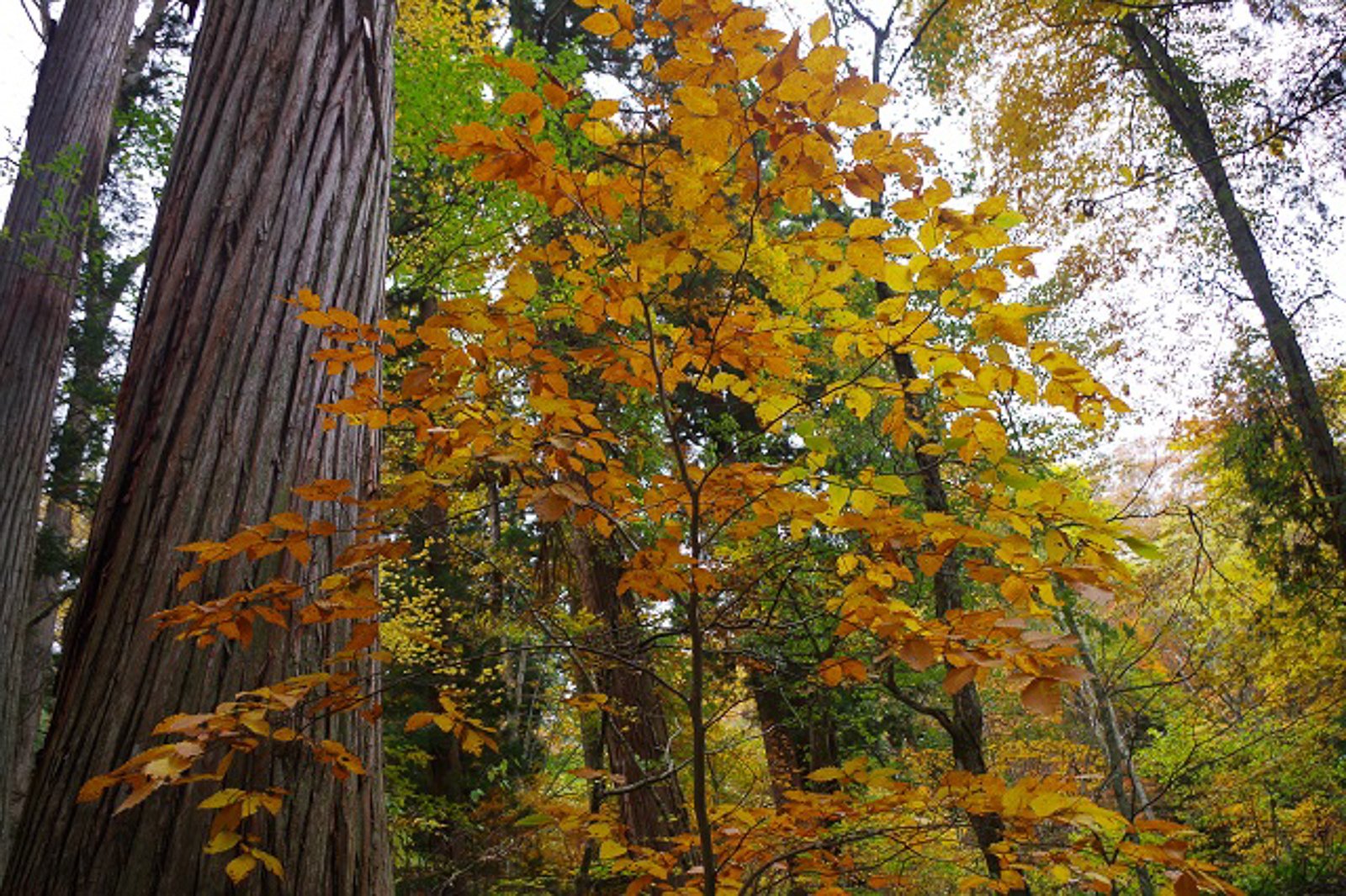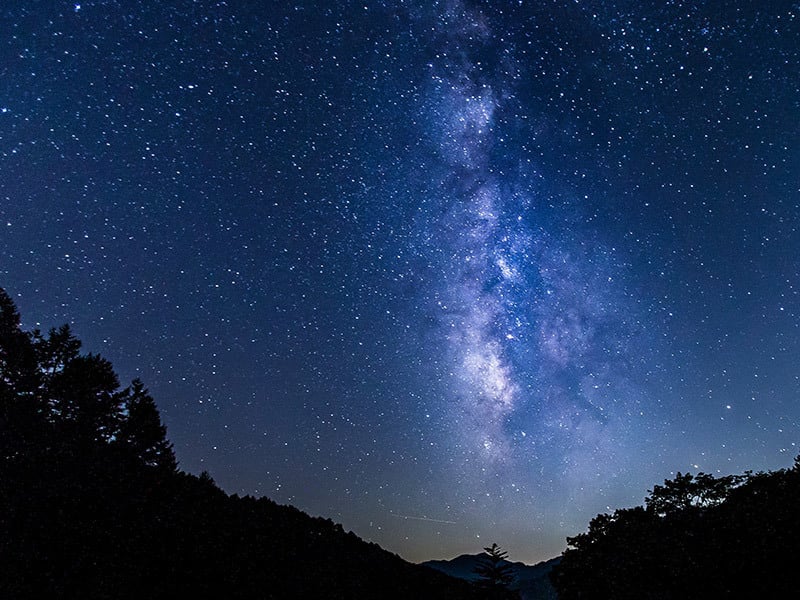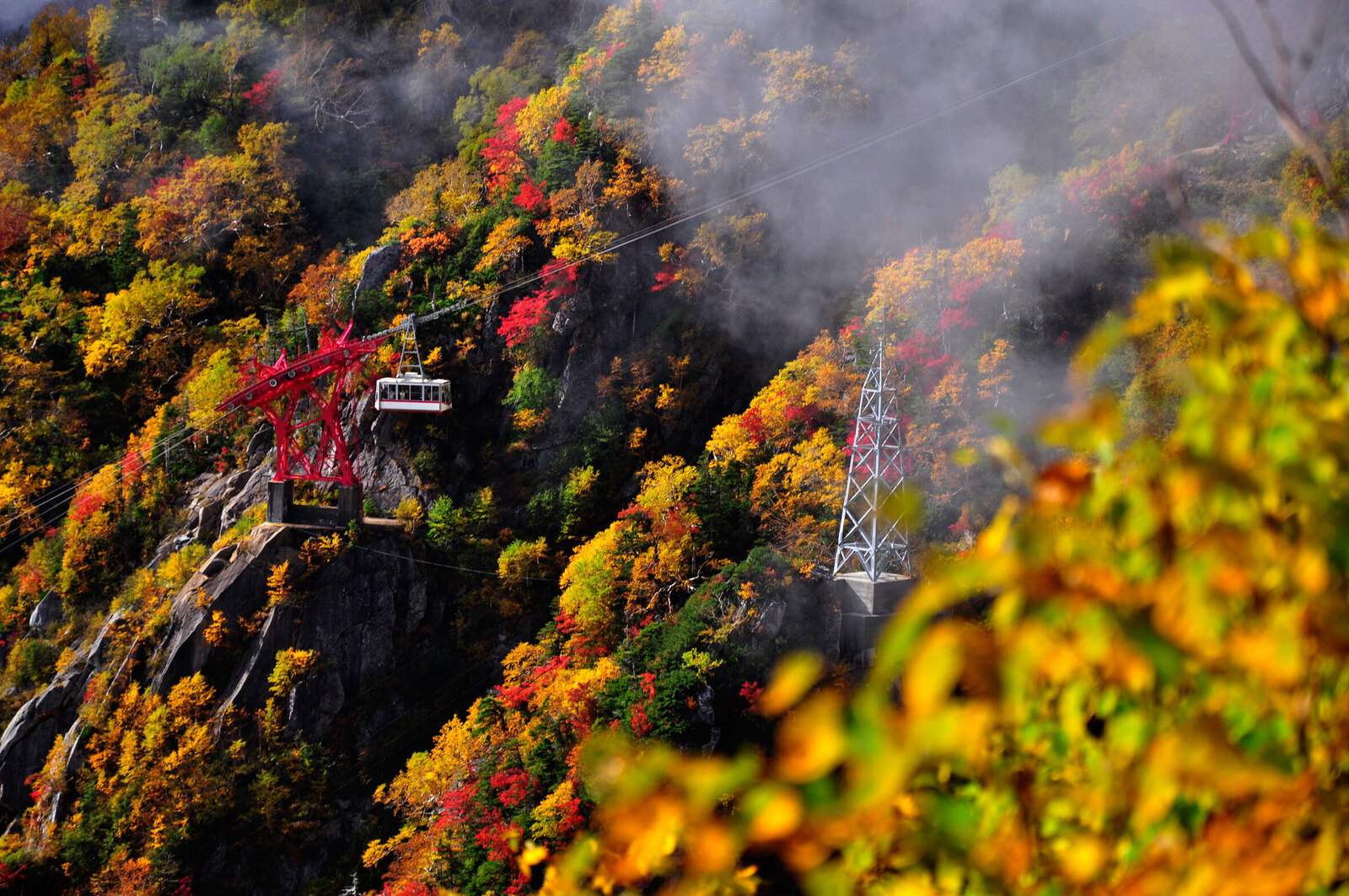
Each autumn, Nagano’s natural splendor bursts into a symphony of crimson, orange and yellow, and the clear night skies invite starwatchers to the mountains. For three days, seek out some of the prefecture’s most famous destinations for fall leaves and starry skies.
Seeking Nagano’s Fall Colors and Starry Skies
Trip Highlights
- Relax with a stay at an onsen (hot spring) town, highlighted by a trip to the mountains for stargazing.
- Take a riverboat through a picturesque gorge to immerse yourself in fall colors.
- Ride a ropeway to Japan’s highest ropeway station for unparalleled night sky views.
- See what the samurai-era post-town of Narai looks like framed by fall colors.
- Photograph Matsumoto Castle with a backdrop of autumn leaves.
Itinerary
Day 1: Hirugami Onsen and Star Village Achi
Travel to Hirugami Onsen for a relaxing stay at a traditional hot spring ryokan. At night, take a bus and gondola tour to Star Village Achi for stargazing. Stay in the hot spring area of Hirugami Onsen in Achi Village.
.jpg)
Hirugami Onsen resort town can be explored on foot, with a riverside path and an onsen bath. Then return to your inn for an early dinner.
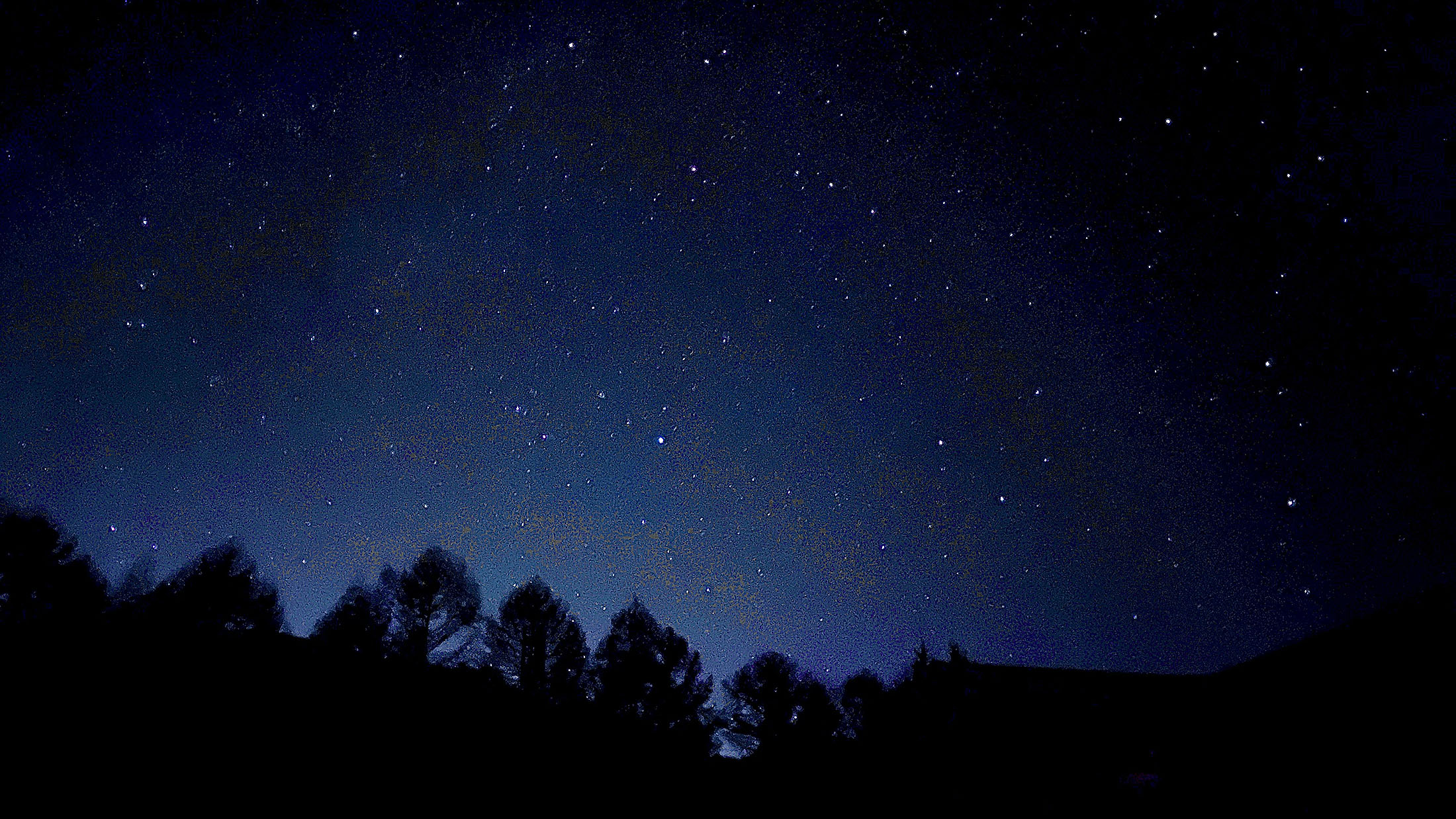
Take the shuttle bus then the gondola lift to this park at an altitude of 1,400 meters for a stunning view of the night sky.
Day 2: Tenryu River and Senjojiki Cirque
Ride a boat between the towering cliffs of the Tenryu River Gorge and see vivid autumn foliage. Then take the Komagatake Ropeway up to the 2,600-meter-high Senjojiki Cirque and its starry sky. Stay among the stars at Hotel Senjojiki or at the base of the mountain at Hayataro Onsen (Komagane City).
Alternatively, it is possible to leave Hirugami Onsen at a more leisurely time and take a taxi (approximately 15 minutes) to Tenryu Gorge.
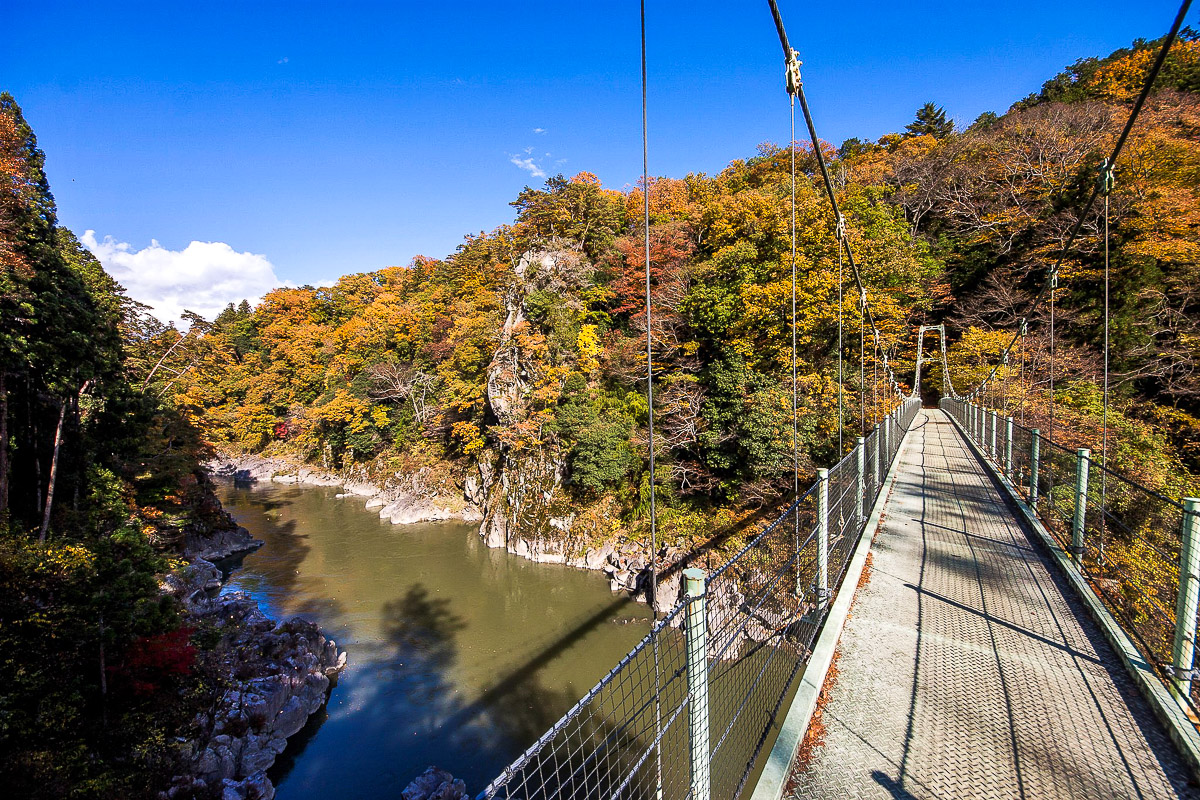
The mighty Tenryu River flows from Lake Suwa and heads out to the Pacific, passing along the way through this deep gorge lined by towering, rugged cliffs. From the station, you can walk the one-hour trail along the gorge, including a thrilling suspension bridge.
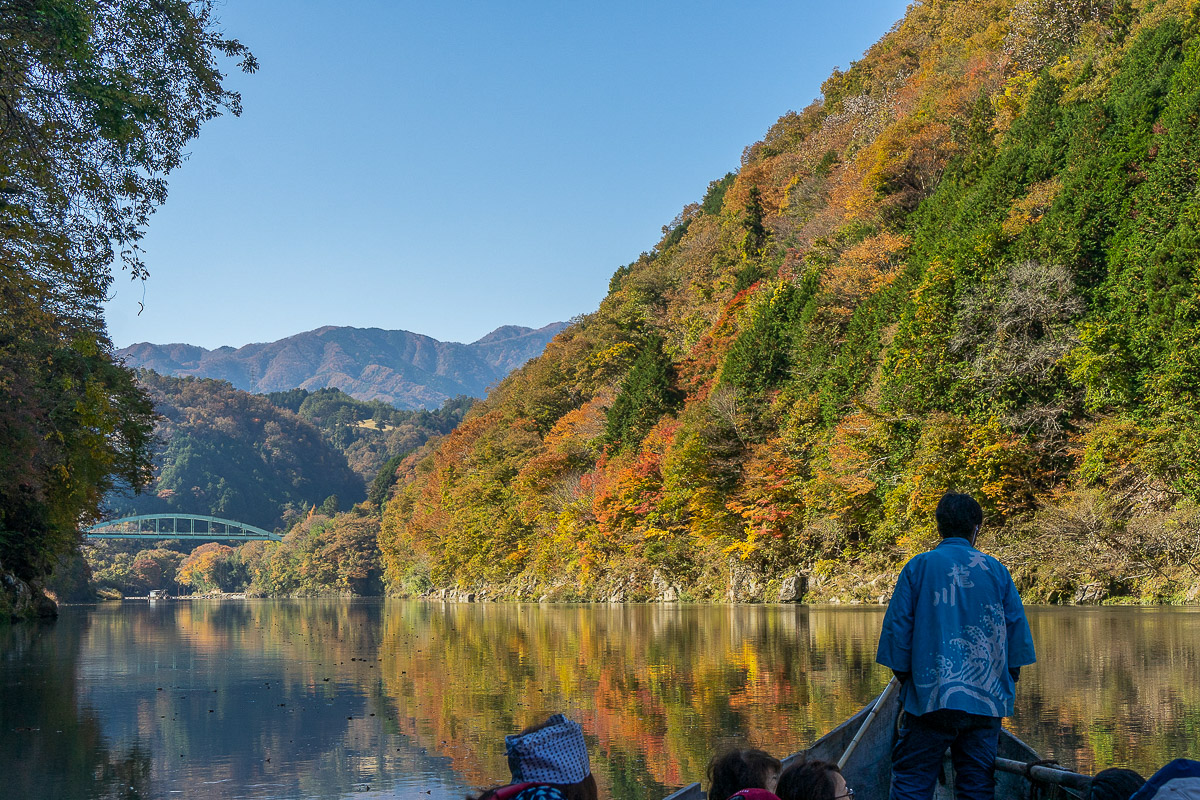
This 50-minute leisurely cruise in a traditional wooden boat passes through the Tenryu Gorge. Along the way, the guide demonstrates traditional net fishing and points out many of the jagged rock formations, including one in the shape of a rising dragon from where Tenryu (meaning “Heaven’s Dragon”) River got its name. (Fall colors early to mid-November.)
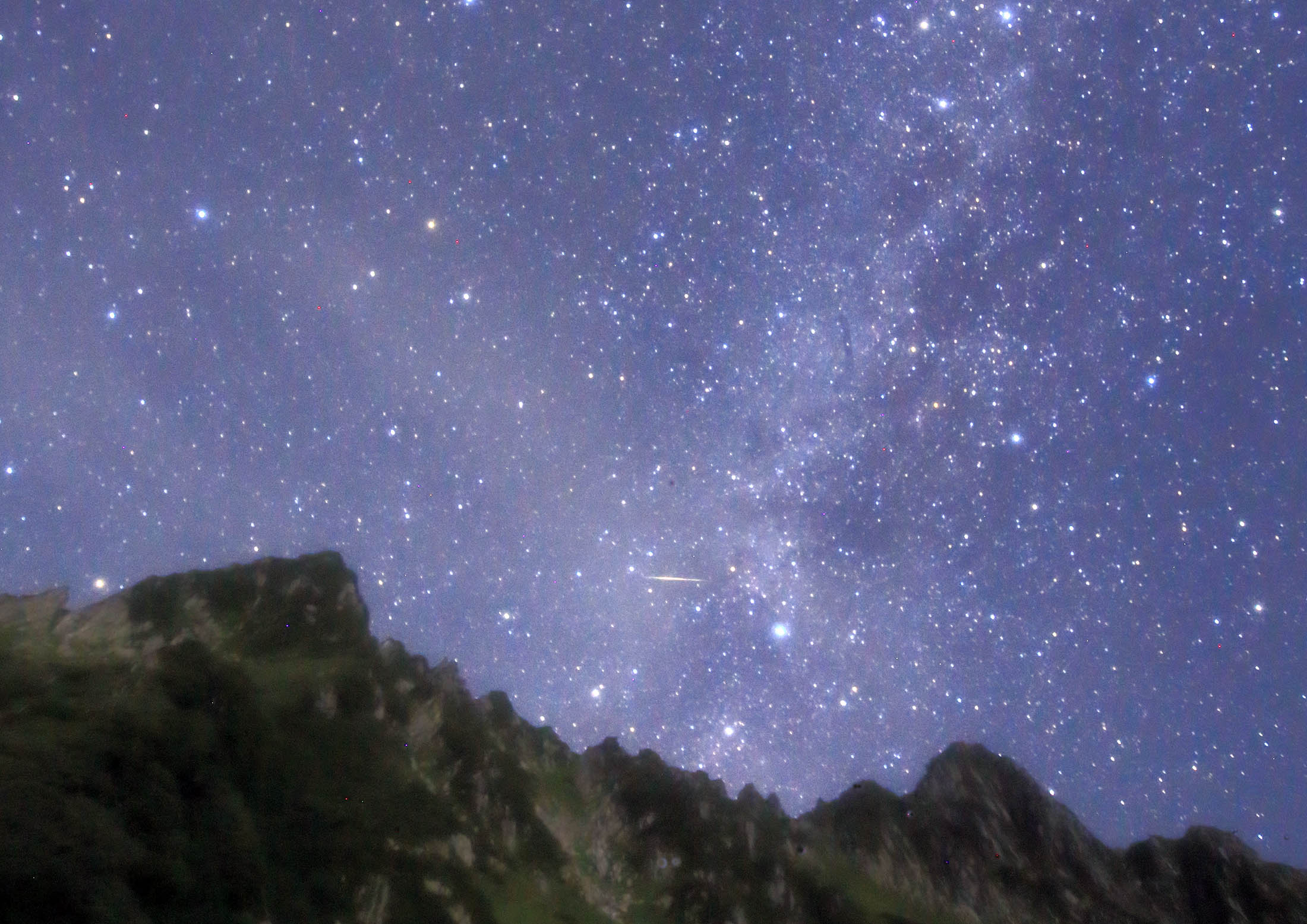
The Komagatake Ropeway whisks guests from Shirabidaira Station (1,662 meters) to Senjojiki Station (2,612 meters – the highest terminal in Japan) in just seven and a half minutes. The Senjojiki Cirque is a semi-circular basin carved some 20,000 years go by glaciers near the top of the Central Japanese Alps. The name “Senjojiki” refers to the basin’s vast size: approximately 1,000 tatami mats laid out across. Staying the night at the Hotel Senjojiki, the highest hotel in Japan, would allow you to enjoy an unapparelled view of the starry sky. And in late September and early October, the high-altitude vegetation turns brilliant shades of scarlet red and golden yellow.
Day 3: Hayataro Onsen, Narai-juku and Matsumoto Castle
Descend back down from Senjojiki Cirque and head to Hayataro Onsen for a scenic walk. Then stop at the timeless townscape of Narai-juku on the way to see the fall leaves at Matsumoto Castle.
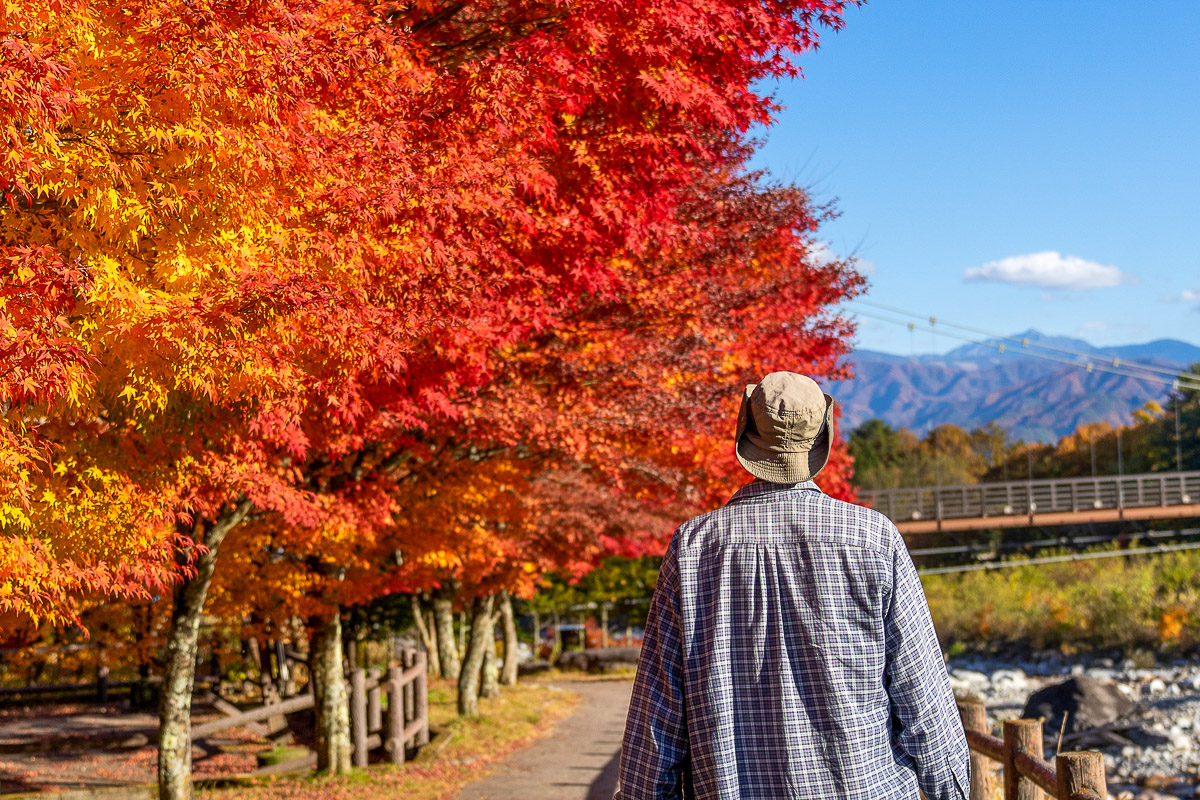
After descending to Hayataro Onsen, enjoy a stroll along the main river and its thrilling suspension bridge which boasts views of both the Central and Southern Japanese Alps. If time allows, a soak in alkaline hot spring mineral water awaits at the day-use bath house.
Komagane Sauce Katsudon

Hayataro Onsen is located in Komagane City, famous for sauce katsudon. It is “tonkatsu” (breaded and fried pork cutlets) served on top of a “donburi” (bowl of rice). This combination, called “katsudon” is usually cooked with egg. In Komagane’s version, instead of egg, the breaded pork cutlets are seasoned in a special sweet sauce. While Komagane sauce katsudon is served at various restaurants throughout the city, perhaps the most well-known is Meijitei, now with branches throughout the prefecture. Meijitei features a sauce using 12 different ingredients and is sold in bottles for souvenirs.
Momiji Lake
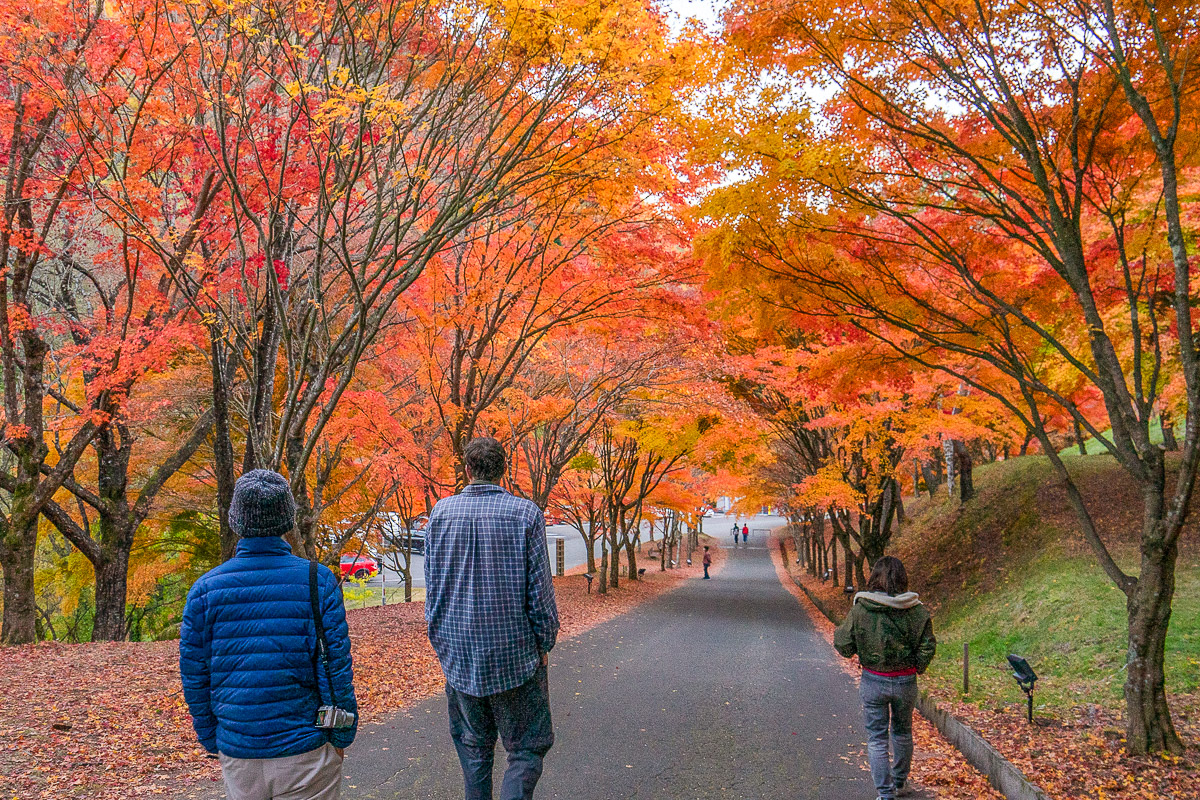
As a late fall alternative to Senjojiki Cirque, Momiji Lake across the valley in Minowa Town boasts 10,000 Japanese maple trees. They turn brilliant shades of red and orange in early to mid-November. Momiji Lake can be reached by taxi from Ina-Matsushima Station, halfway between Komagane and Okaya Stations.
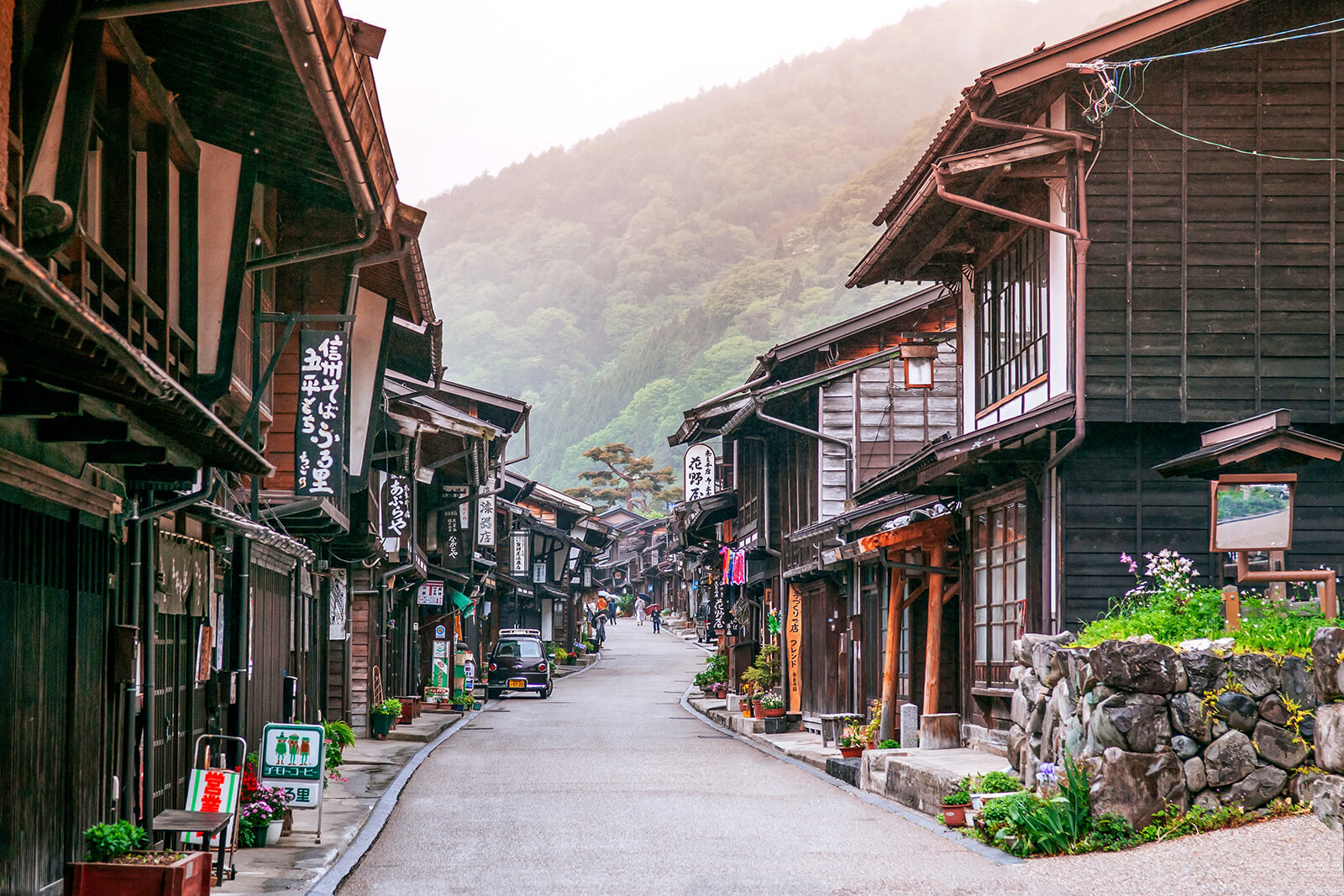
Of the 69 post towns on the Edo-era Nakasendo highway between Kyoto and Edo (today’s Tokyo), Narai was the wealthiest and was known as “Narai of a Thousand Houses.” Many of the buildings have been faithfully restored, their dark wooden facades creating a handsome contrast to the surrounding hills. When the needles of the larch trees in those hills turn golden yellow in the fall, Narai-juku takes on a uniquely autumnal hue.
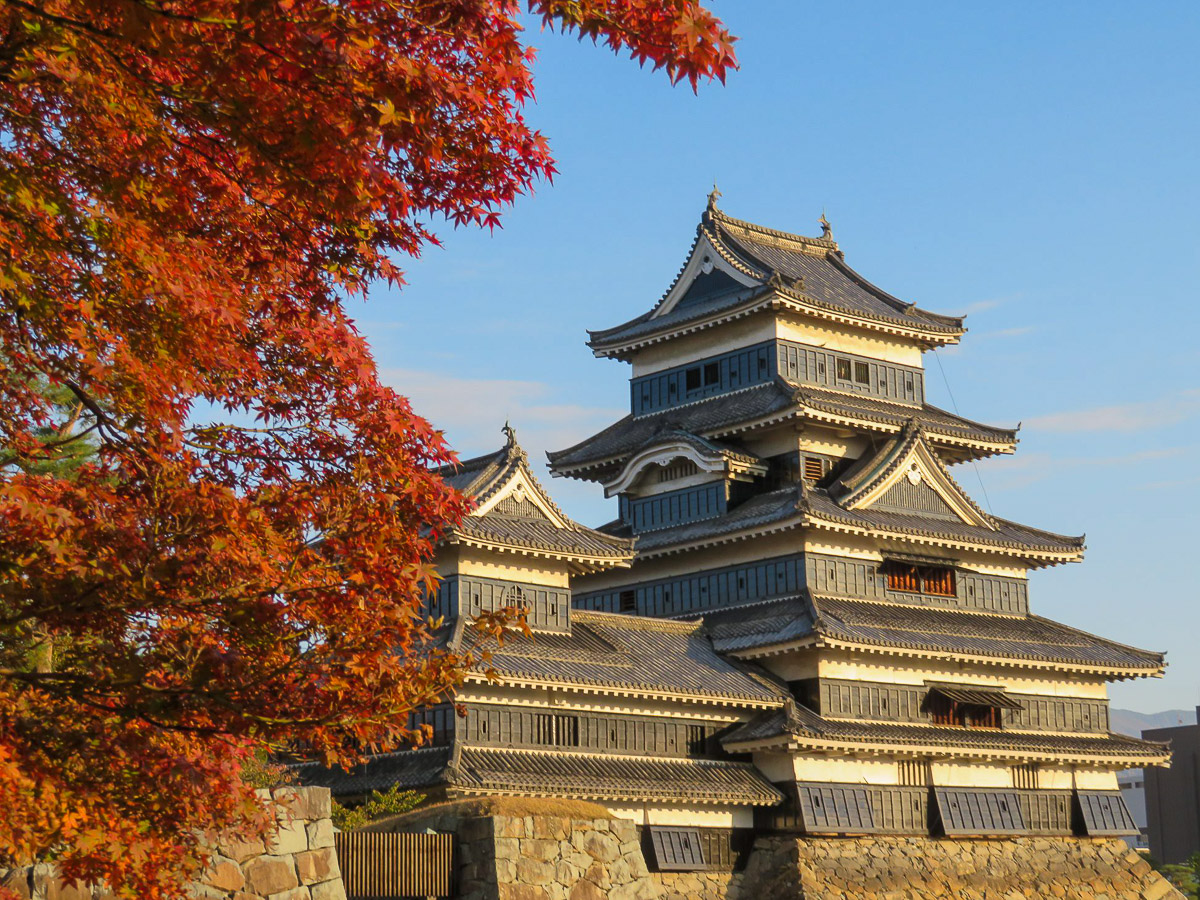
With its stately black keep, Matsumoto Castle forms an austere backdrop to the colorful fall foliage of the trees lining the moat. Matsumoto Castle marks the end of this itinerary. While it is possible to take an express train from Matsumoto Station back to Nagoya, or the Azusa train to Tokyo’s Shinjuku Station, Matsumoto is also the gateway to Northern Japanese Alps and other Nagano Prefecture highlights such as the Hakuba Valley and picturesque Utsukushigahara highlands, which beckon for additional appreciation of Nagano’s autumn splendor.

